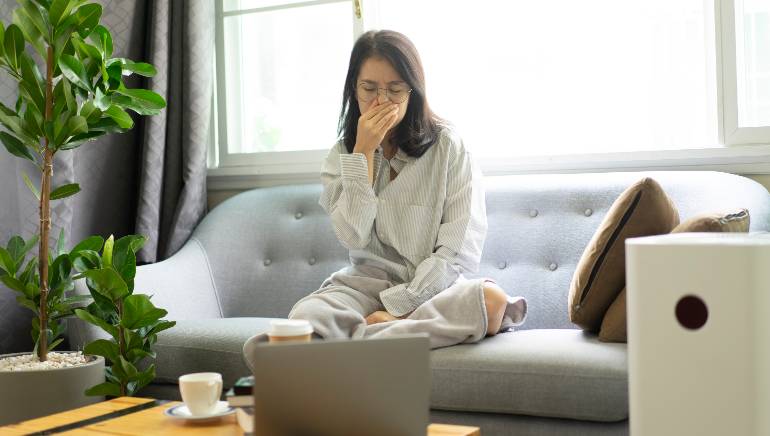
Everything In Your Home That’s Affecting Your Skin
When it comes to caring for our skin, we all immediately turn our attention to our skincare routine or our diets; however, so many of us fail to recognize the impact of our environment. It’s not just about drastic environmental concerns, such as damp problems that require basement tanking in London or beyond, but it’s also about things that we do on a day-to-day basis. Since indoor pollution particles are small, they can be absorbed by the skin very easily. Some indoor toxins include dust, pet hair, candles, air fresheners, and cleaning products.
Table of Contents
ToggleHard Water
The term “hard water” is thrown around a lot; however, not everyone necessarily knows what this means. Essentially, hard water contains traces of calcium, magnesium, and iron, which can break down collagen and the skin’s function. This happens due to the forming of free radicals, which results in sagging skin, wrinkles, and premature aging in general. Similarly, skin conditions, such as eczema and rosacea, can also take hold. You can tell that you have hard water if it leaves a film on your skin or leaves spots on drinking glasses after washing. Similarly, your bathtub or shower may also have a film on the bottom.
UV Rays
You may think that when you’re inside, you don’t need to worry about the sun’s UV rays; however, this isn’t quite the case. In fact, UV rays can penetrate skylights and windows and reflect off surfaces, which only magnifies the effect of exposure. What’s more, when combined with the light from devices, UV rays can be even more detrimental to your skin. In fact, it can seriously contribute to signs of aging and hyperpigmentation. Therefore, even if you’re not leaving the house, you shouldn’t neglect the importance of sunscreen application. Vitamin C is also important for boosting natural collagen production, so be sure to look for this within an SPF product.
Dry Air
Summer is well and truly underway, meaning you’ll likely have your air conditioning on full blast for much of the day. Despite this, the dry air that’s given out by air conditioning draws moisture from the air. As a result, your complexion may be left irritated and parched, resulting in itchiness. One way to combat this issue is by keeping temperatures as balanced as possible. This means steering away from blasting the air conditioning and using a humidifier, too. As a result, your skin is sure to remain healthy and glowing rather than being dehydrated and irritated.
Pollution
Pollution sits among the worst things for your skin, as this results in rapid aging. For instance, wrinkles and fine lines can be triggered due to oxidation. This is on top of the triggering of eczema, psoriasis, hyperpigmentation, acne, and even skin cancer. While it’s true that our skin is our largest organ and it acts as a protective barrier, it can still be penetrated by nanoparticles. From this, lipids and collagen can be broken down, which weakens skin protection. In fact, those who live in more populated regions are said to look around 10% older than women who live in less populous areas.
Blue Light
All our devices contain blue light and, unsurprisingly, this isn’t very good for your skin (or eyes). In fact, blue light penetrates the skin more deeply than sunlight, resulting in wrinkling, a loss of elasticity, and wrinkling. In order to combat this, you might set your devices to night mode and reduce the amount of time you spend on your devices. Similarly, vitamins C and E and zinc can all be beneficial when it comes to tackling the effects of blue light.


